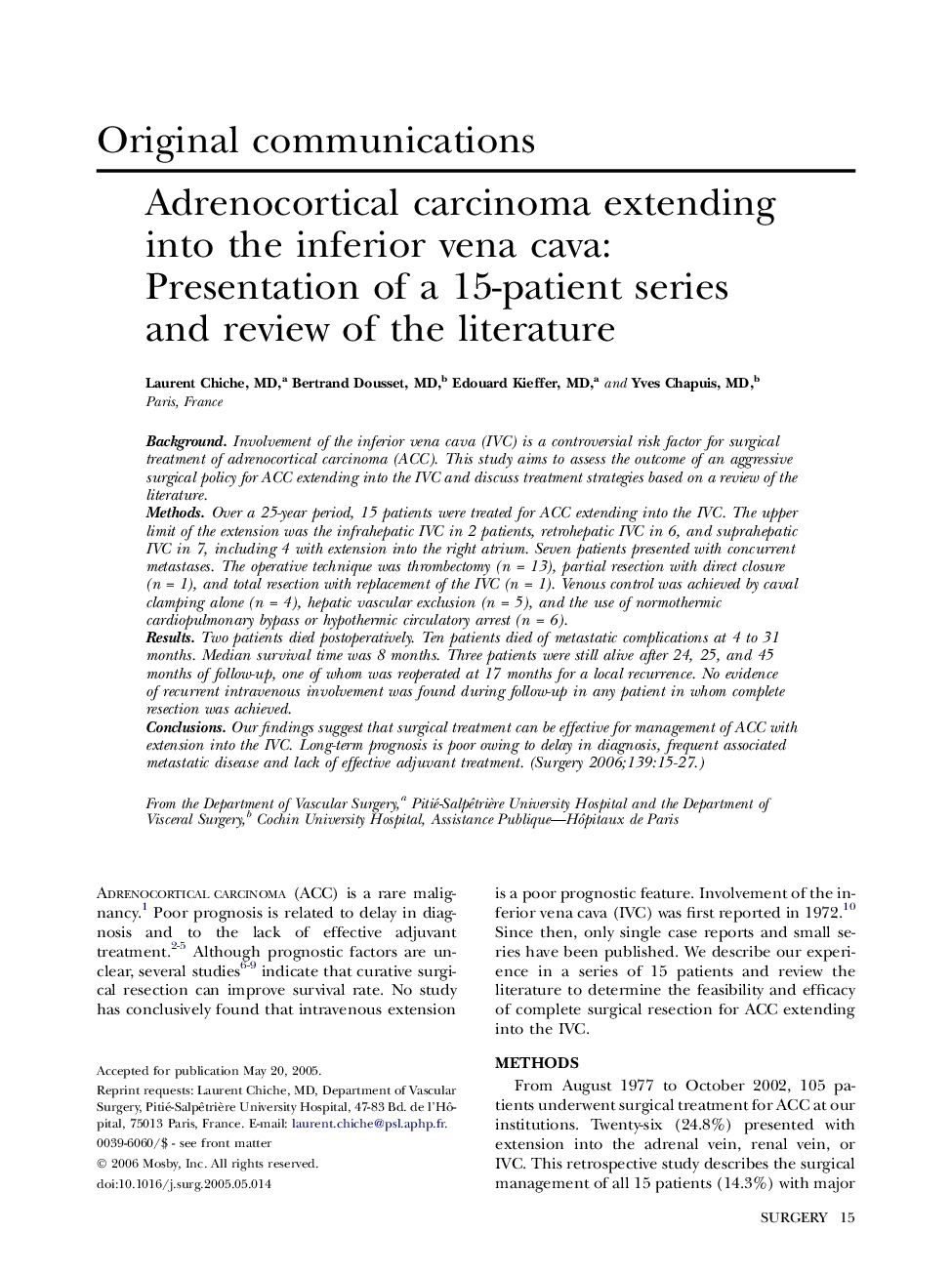| Article ID | Journal | Published Year | Pages | File Type |
|---|---|---|---|---|
| 4310296 | Surgery | 2006 | 13 Pages |
BackgroundInvolvement of the inferior vena cava (IVC) is a controversial risk factor for surgical treatment of adrenocortical carcinoma (ACC). This study aims to assess the outcome of an aggressive surgical policy for ACC extending into the IVC and discuss treatment strategies based on a review of the literature.MethodsOver a 25-year period, 15 patients were treated for ACC extending into the IVC. The upper limit of the extension was the infrahepatic IVC in 2 patients, retrohepatic IVC in 6, and suprahepatic IVC in 7, including 4 with extension into the right atrium. Seven patients presented with concurrent metastases. The operative technique was thrombectomy (n = 13), partial resection with direct closure (n = 1), and total resection with replacement of the IVC (n = 1). Venous control was achieved by caval clamping alone (n = 4), hepatic vascular exclusion (n = 5), and the use of normothermic cardiopulmonary bypass or hypothermic circulatory arrest (n = 6).ResultsTwo patients died postoperatively. Ten patients died of metastatic complications at 4 to 31 months. Median survival time was 8 months. Three patients were still alive after 24, 25, and 45 months of follow-up, one of whom was reoperated at 17 months for a local recurrence. No evidence of recurrent intravenous involvement was found during follow-up in any patient in whom complete resection was achieved.ConclusionsOur findings suggest that surgical treatment can be effective for management of ACC with extension into the IVC. Long-term prognosis is poor owing to delay in diagnosis, frequent associated metastatic disease and lack of effective adjuvant treatment.
